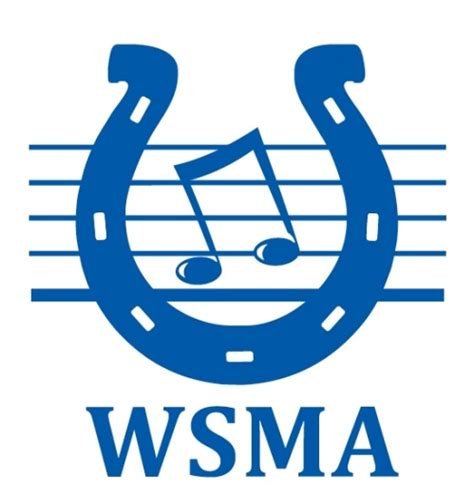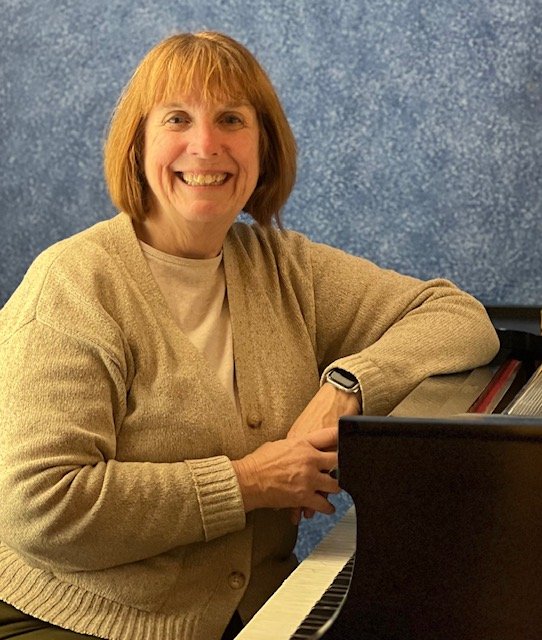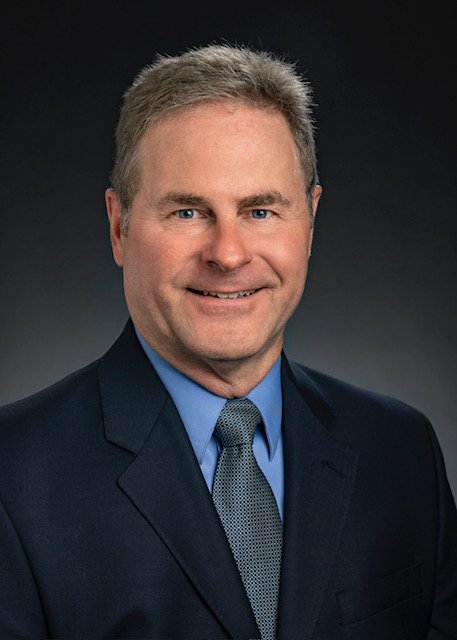Board of Education Candidates
Music plays a significant role in the holistic development of our youth, and we believe it is important that our schools continue to provide high quality music education programs. As candidates for the Board of Education, the WSMA is interested in learning about how these candidates will support music education in Wyoming City Schools.
Joe Brinkman
1. What is your personal experience or background with music education, and how has it influenced your perspective on the importance of music programs in schools? Music education has been a major part of my life. When I was in sixth grade, my school music teacher started the school’s first band program (the school only had 200 students total). I loved having the opportunity to learn and play the snare drum and performing with my classmates. My passion for music led to me being a member of the Roger Bacon HS band for five years, starting in eighth grade. I had so many wonderful experiences as part of the band, none more so than an amazing cultural exchange trip to Moscow, Russia in 1998 where we performed for thousands of people. I consider myself fortunate to have been offered the opportunity to explore music at school, and I believe that every student should have that same opportunity.
2. How do you see music programs contributing to a student's education? Learning to sing or play an instrument at a young age is about discovering your own potential. Music can be a very positive growth experience, even for students who only pursue it for a short time. I have seen this in my own daughters (aged 14 and 10) as they have benefitted from the music programs in Wyoming. My 14 year old spent many years in choir at the primary and middle school levels. My 10 year old chose the violin as her 4th grade instrument. While she initially had little interest in playing an instrument, she pushed herself to learn, and was proud of her accomplishments by year-end. Music education can also simply be about learning to appreciate all of the music in the world around us and sharing it with others.
3. What is your commitment to ensuring that music education remains a vital and integral part of our school district's curriculum, even in challenging budgetary or political circumstances? I am fully committed to ensuring that music is always part of our curriculum in Wyoming. We are fortunate to have a community that generously supports music education. If we did ever find ourselves in a situation where music education was threatened, then I would absolutely fight to preserve it.
4. How should the new primary school facilities plan support effective music education? Our primary facilities should provide spaces where students can explore and learn music. One of the drivers behind the facilities planning is to create more space for specials like music and art. Our facilities should provide adequate space for instruction and equipment storage, and not create an undue burden on teachers and staff who provide our music programs. While the specific layout will be determined by the community and the architect, I have confidence that our new facilities will continue to support music for many years.
Jeanie Zoller
1. What is your personal experience or background with music education, and how has it influenced your perspective on the importance of music programs in schools? Music both comforts and challenges me. I studied piano and voice, have sung in a church choir since I was 10, and had incredible opportunities in my high school vocal ensemble. Met my husband there. Our children participated in all three of Wyoming’s music programs – strings, voice, band, while our grandchildren are beginning clarinet players. Our children were also involved with drama, dance, and fine art K-12 programs offered in our district. One of the factors that brought us to Wyoming was the strong music and drama programs. Even without a proper auditorium, Wyoming music and drama productions were excellent. We attended regularly and still try not to miss the marching band or the holiday showcase or graduation with a full orchestra. We sang in Saengerfest. Iconic teachers provided rigorous instruction and exposure to all genres of music. We experienced and profited from community links to the Cincinnati Symphony Orchestra, CCM Prep programs for our children, and the Wyoming Fine Arts Center which our children attended for music, art, drama, and dance. While teaching in the middle school, a colleague approached me about starting a drama program which she and I did for the next thirteen years. We saw the value of a creative outlet for middle school students. This was their “team.’’ Annually we did a musical, a 7th/8th grade play, and a variety show every spring that included easily a third of the school. Our Wyoming City Schools mission statement says that we will “cultivate innovative, student centered educational programs and opportunities that foster the academic growth and personal development of each child.” I see a strong commitment to the fine arts as part of that mission.
2. How do you see music programs contributing to a student's education? It is noteworthy that a plethora of data proves the positive impact academically of studying music. A student benefits in creativity, listening, cognition abilities, and fine motor skills. Studying music enhances the ability to problem solve and understand abstract concepts. In addition, the discipline and perseverance required to become proficient foster life skills such as commitment and resilience and teamwork. Exposure to genres of music, teaches the history of our civilization as well as cultural awareness in our contemporary society. Listening to or playing music contributes positively to the mental health of our students as well. Empathy, self-confidence, connections with others, and managing stress are valuable outgrowths. That music period in the school day can be an oasis of calm and help a child retool for the academic periods.
3. What is your commitment to ensuring that music education remains a vital and integral part of our school district's curriculum, even in challenging budgetary or political circumstances? Our district has often described its mission as educating the whole child. When searching for a new superintendent, the Board prepared a statement defining whole child. It reads, “We maintain a special commitment to educate the “whole child” which we define as excellence in academics, challenging coursework, commitment to the fine arts, exposure to a second language, and opportunities in athletics. I stand by that statement now as I did during the superintendent search. Scheduled art and music K-6 classes exceed state minimum standards. In addition, we offer a variety of instrumental opportunities with specialized teachers starting in the primary that are often only available in larger districts. We have hired additional music personnel in the primary and middle. The recent turnover within the music department necessitates a review of program alignment and purpose. As the Primary and Middle School review their academic scheduling, music and art (and Spanish, physical education, health, and intervention) will need to be interwoven. These are not Board actions. Our professional staff and its leaders will participate in those discussions. Our district receives financial support in the arts from the WSMA, from PSA, and from the Wyoming School Foundation to supplement budgets. The Wyoming Arts Show of which I am the treasurer, partners each year in recognizing seniors pursuing the arts after graduation as well scholarship prizes. The school district is grateful for all support and to the time/talent commitments of those volunteers. WSMA initiatives over the years such as the progressive dinner, the evening at the Fine Arts Center, dinners before the musicals, the Porch concerts, and the community wide invitations to school concerts showcase our music program.
4. How should the new primary school facilities plan support effective music education? Among the educational needs identified for the new primary facilities is a dedicated music room, and a dedicated art room. Since we have traveling teachers in the primaries in order to offer equitable music opportunities in three buildings, the possibility may exist that these different purposes could share space depending on the decision about grade distribution per each building. Nevertheless, any new build would need proper storage for instruments, music, and resources such as a piano. The room itself must be designed for creative movement and performance with good acoustics. Those are discussions not designs at this time. In order to build proficiency, music programs must begin in the primaries. I would like to see a K-6 alignment plan that seamlessly works into the elective high school offerings. The pandemic was especially hard on performance music but we have at last put that in the rearview mirror allowing us opportunities for creative and innovative planning. Our new standards based primary report cards introduced this school year set primary standards that include reading music, composing music patterns, duplicating rhythms, trying multiple instruments, as well as music appreciation of historical periods and music from different cultures. To achieve these standards, teachers and students will need a designated space and adequate class periods.
John Feldmeier
1. What is your personal experience or background with music education, and how has it influenced your perspective on the importance of music programs in schools? Music education was a central part of my childhood. I enjoyed six years of concert band, four years of marching band, and one year as my high school drum major. As a percussionist, I learned to play a variety of instruments. I can still play, from memory, many of the drum cadences our drumline performed for parades. And don’t even get me started on band camp! Summer band camp was one of the most exciting and fulfilling experiences I had as a teenager. My music education undoubtedly influenced how I raised my children. From my kids’ earliest ages, my wife (also a former band kid) and I filled their time and spaces with music. Countless hours of The Wiggles, preschool Webby Dance classes, piano lessons, summer camps and performances at the Wyoming Fine Arts Center, trips to Broadway musicals, memorizing tracks from Hamilton, performing roles in WMS musicals, and school band, strings, and choir. Our kids did them all! These experiences are reflective of importance I place on music in our schools.
2. How do you see music programs contributing to a student's education? Music can be an incredibly valuable resource in human growth and happiness. It provides creative opportunities, cognitive development, emotional balance, and social connections. For many, music can be a source of independence and courage. An outlet for joy or frustration. It can give students a place of refuge and comfort. Music helps children celebrate, mourn, connect, feel, and love. Music can enhance other components of education, such as math, history, literature, and science. And it can provide its own stand-alone lessons, like social awareness, rhythm, harmony, and empowerment.
3. What is your commitment to ensuring that music education remains a vital and integral part of our school district's curriculum, even in challenging budgetary or political circumstances? I see music as an essential element to the educational mission of Wyoming City Schools. Music education promotes expansive and balanced learning and is necessary to whole-child development. Our school district’s commitment to its music programs should remain consistent and strong, regardless of the political or budgetary circumstances of the times.
4. How should the new primary school facilities plan support effective music education? We need dedicated music spaces in our new primary school facilities. It’s important to have permanent and well-resourced music rooms for the proper administration of music education. Students need spaces for their instruments, equipment, and freedom of movement. And teachers need spaces to establish a strong sense of belonging for themselves and their students. Dedicated music rooms also provide an important symbolic and structural presence, reflecting the status and value of music in the district. If we teach music in the hallways or broom closets, we send a message to all that pass through the school that the subject is not highly valued. Having a music room in each primary school will demonstrate the critical role of music in our children’s overall education.
Michael Evans
1. What is your personal experience or background with music education, and how has it influenced your perspective on the importance of music programs in schools? First, as a candidate with children in Wyoming City Schools, our family has first-hand experience with the benefits of music education in Wyoming. My son Charlie plays saxophone in the 6th grade band, my daughter Lexie is a violinist in the high school Sinfonia orchestra, and my son Tyler played clarinet through the 8th grade. The quality of our music education program is simply outstanding thanks to the support of organizations like the WSMA and the fantastic music educators in our district. I will never forget Ms. Denney driving around town during Covid and tuning kids’ instruments outside their homes! How lucky we are to have such dedicated teachers! As a professor of education at Miami University, I occasionally have music education majors in my classes and I hear about the challenges they face when they have field experiences in districts that lack resources. It has reinforced for me how fortunate we are to live in a community that has such a strong commitment to the arts.
2. How do you see music programs contributing to a student's education? As an educational researcher, I am familiar with a number of academic studies that correlate prolonged participation in music education with increased academic performance in math, science and the language arts. Music education can also lead to increased self-esteem for students, higher attendance rates, and fewer disciplinary referrals. Moreover, music provides a creative outlet for many students and important lessons about the value of self-discipline and commitment. As a parent, music education also just makes school more fun! This fall I loved watching my 6th grader march with the high school band and play “Raiders of the Lost Ark” at halftime! The concerts are always amazing and our family loves to discuss our favorite songs as we snack on “chip wheelies” on the way home. Music is a vital part of the Wyoming student experience and I will continue to be a strong supporter.
3. What is your commitment to ensuring that music education remains a vital and integral part of our school district's curriculum, even in challenging budgetary or political circumstances? I am fully committed to ensuring that music education remains a vital and integral part of Wyoming’s curriculum. I have witnessed the loss of music education benefits in other districts primarily due to budgetary constraints following the loss of operating levies. In May of 2023 several districts in southwest Ohio (e.g. Forest Hills, Edgewood, Loveland and Ross) specifically identified music education as one of the areas that could be impacted if their levies failed. I am committed to increasing transparency and community engagement with Wyoming voters so that our programs are never put at risk. I am also an advocate for encouraging the pursuit of external partnerships and funding so that we can enhance our already excellent programs and provide additional opportunities for Wyoming students.
4. How should the new primary school facilities plan support effective music education? Any bond proposal for renovated or new primary facilities that is brought to the Wyoming voters should include plans that account for the continued support of a high-quality fine arts education. Sadly, the process last year unintentionally created a false dichotomy that the community had to choose between neighborhood schools and expanding opportunities for students in a number of different areas. Space is certainly at a premium in Wyoming, but there is no reason that we cannot work collaboratively to develop creative solutions that expand instructional spaces for our music educators and students.




